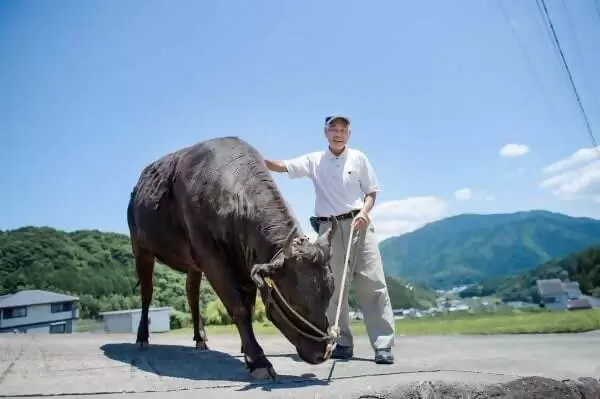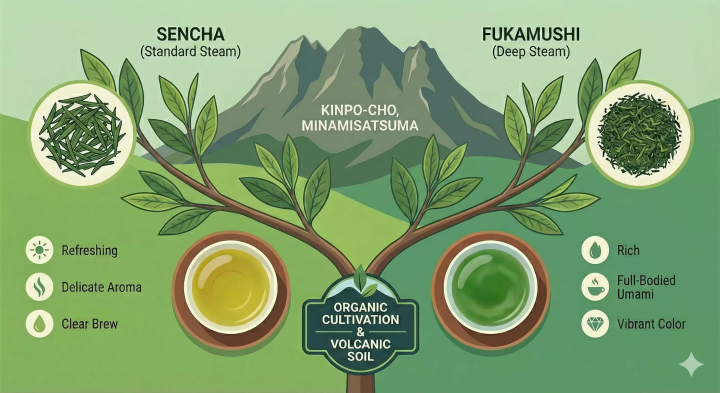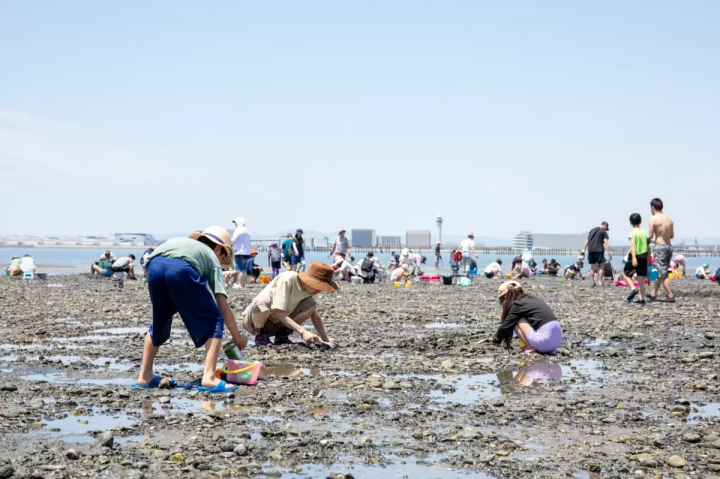Wagyu Beef Guide: Where To Enjoy Kobe Beef And Other Wagyu Brands

While Wagyu beef is popular, few people can define exactly what "Wagyu" means. Let's learn about the types of the Japanese beef known as Wagyu, and discover some Wagyu restaurants in the Tokyo, Osaka, and Kobe area.
What Is Wagyu Beef?
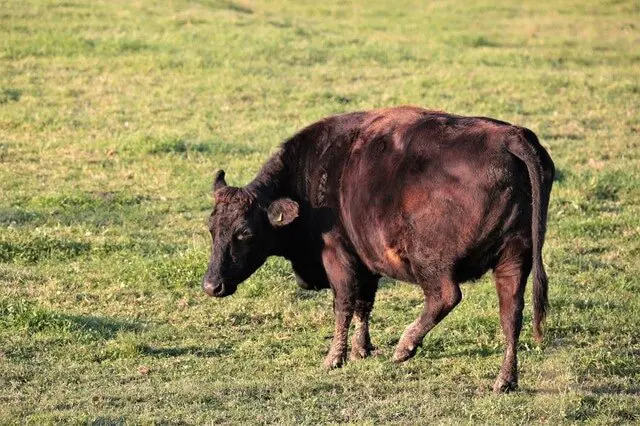
Wagyu cattle are proprietary in Japan, and the name refers to specific breeds of cattle. The brand has nothing to do with where the cows were born, how long they were raised or where they were raised. Beef from all purebred Wagyu cattle is treated as Wagyu beef.
However, the definition of Wagyu is strictly determined. There are currently four cattle breeds certified as Wagyu: Kuroge (Black), Akage (Brown), Mukaku (Polled) and Tankaku (Shorthorn). All four have gone through generations upon generations of selective breeding, creating cattle that provide soft, delicious beef without a strong odor. About 90% of all sold Wagyu is of the Kuroge variety.
Another thing to note is that the tag “Japanese cattle” is easily confused with Wagyu, but it merely refers to cows which were raised in Japan. Cattle raised in Japan for a long enough period of time are designated as “Japanese cattle,” even if they were originally imported from somewhere else.
Wagyu Beef Guide
1. Wagyu and Other Cattle Brands
2. The Price of Wagyu
3. The Meaning of Kobe Beef
4. The Difference Between “Wagyu Beef” And “Kobe Beef”
5. Trivia about Kobe Beef
6. Where to Eat Wagyu and Kobe Beef in Japan
7. Popular Wagyu Hamburg Steak Restaurants
Wagyu Cattle and Other Cattle Brands
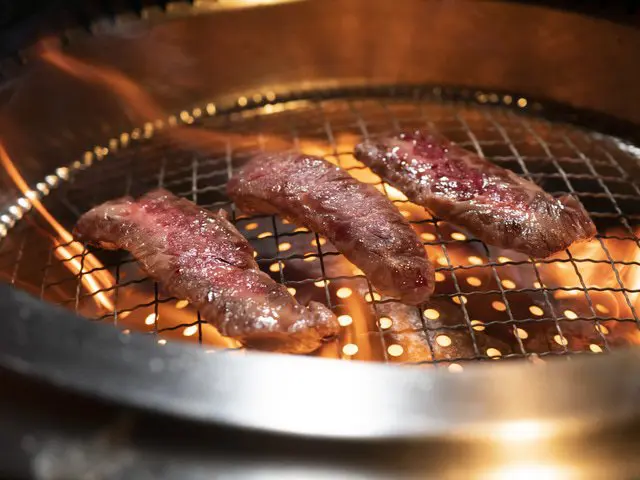
Within the Wagyu classification, there are brand-name cattle like Kobe and Matsusaka, which are generally named for their regions of origin.
This naming convention contributes to branding recognition, which is a major boon for regional vitalization. While standards vary from brand to brand, there are many strict criteria which must be met for beef to be allowed to use a given brand name. These criteria include the place of birth, the family pedigree and breed, how the cows were raised and for how long, as well as the quality of meat.
Kobe beef and Matsusaka beef are said to be two of the top three Wagyu brands in Japan. However, opinions are split on whether Omi beef and Yonezawa beef, both delicious and high quality in their own right, should be included in this select group. For this reason, there are also strong arguments for naming Kobe beef, Matsusaka beef, Omi beef and Yonezawa beef the top four Wagyu brands in Japan.
Incidentally, there are 15 grades (ranging from C1 to A5) within the Wagyu classification; the grade of a given cut is dependent on its yield rate and the quality of meat. A5 beef is regarded as the absolute best, and some restaurants take pains to only serve A5-grade beef. Keep this in mind when you’re looking for a steak restaurant.
There are many other brands, some of which we will introduce below.
Tajima Beef
Tajima cattle could be called the rootstock of most Wagyu-branded beef. Brands like Kobe beef, Sanda beef and Awaji beef get their cows from Tajima cattle lineages, which are then raised in the brands’ respective regions before meeting Wagyu classification standards. Furthermore, even the cattle herds of other beef brands across the country, like Matsusaka, Omi, Maesawa, Sendai and Hida, can contain Tajima cattle, and sometimes use Tajima cattle lineages when improving their breeding stock; they all have some part of Tajima in them.
The Tajima region in northern Hyogo prefecture has a storied history of cattle breeding, and there are even ancient documents that talk about the suitability of Tajima cattle as plow animals and as food.
Matsusaka Beef
Matsusaka beef comes from Kuroge Wagyu breeds, and the cattle should have been brought into Mie’s Matsusaka beef production region no later than a year after being born; the classification refers only to cows which have not yet given birth.There is an excellent balance of red meat and fat in Matsusaka beef cuts, and they are a model example of what is known as “marbled beef.” The cows are given beer to drink in order to keep their appetites up, and massaged so that fat is spread uniformly throughout their bodies. It is said that many cows are treated remarkably well, almost embarrassingly so. Thanks to that treatment, Matsusaka cows are raised to produce incredibly soft and delicious beef.
Omi Beef
Omi beef comes from Kuroge Wagyu breeds and the terms refers to the most fattened cows from within Shiga Prefecture. Omi cattle are raised in the lush areas around Lake Biwa, Japan’s largest lake, which are blessed with many mountains and other natural features. Few of these cattle are shipped out of Shiga, making Omi a very rare brand of beef. Omi beef’s exceptional balance of red flesh and fat make it perfect not just for Japanese food but for French food as well, so it is exported overseas comparatively often. Omi beef is used at many French dining establishments, including Michelin-starred restaurants.
Yonezawa Beef
Yonezawa cattle come from Yonezawa City in Yamagata Prefecture, and must have been continuously raised in a registered cattle barn in the city for over 18 months. Cows must have never given birth, and bulls must have been castrated. Once the cattle have passed a strict quality assessment, they are recognized as Yonezawa beef. In the 1870s, a trader, Charles Henry Dallas, was invited to work as an English teacher in Yamagata, He fell in love with the taste of Yonezawa beef and took some back with him to Yokohama, which is how the brand became known throughout Japan.
Hida Beef
Gifu Prefecture, located in the center of Japan, has vast forests, clean water and air, as well as environments which experience major temperature swings between day and night, depending on the season. Within this beautiful natural setting, carefree, fat, healthy Hida cows amble through their pastures. These Kuroge Wagyu cattle are fattened for over 14 months by authorized cattle producers and should have spent the majority of their lives in Gifu. Cattle which meet the meat quality standards are then recognized as Hida beef.
Saga Beef
Saga cattle are raised in Saga Prefecture, in the Kyushu region. The area’s temperate climate and a stress-free lifestyle of the cattle give Saga beef a tenderness and well-balanced fat content, with a sweet depth of flavor suitable for all sorts of beef dishes, including steaks and shabu-shabu.
Hokkaido Wagyu Beef
While Hokkaido has a well-deserved reputation for the fresh milk that serves as the basis for its cheese, butter, ice cream and other dairy product exports, many of the calves for Wagyu cattle, including Tajima cattle, come from Hokkaido. There are also many Wagyu cattle of high-quality stock, reared all over Hokkaido. This includes breeds like Soyakuro cattle from the island’s northernmost tip, Kitami and Tokachi Wagyu cattle from the east, Biei and Furano Wagyu from central Hokkaido, Hakodate Wagyu and Mitsuishi cattle from the south, and more.
Olive Beef
Shodoshima in Kagawa Prefecture pioneered olive cultivation in Japan, and is also said to have been one of the first areas in the country to start raising Wagyu cattle. Olive cattle are raised in the warm climate of the Seto Inland Sea region and fed squeezed olives; this gives their meat a characteristic juiciness that is reminiscent of olives. There are even fewer olive-fed Sanuki cows, which generally only give birth to one calf apiece. Due to the extreme rarity of this beef brand, it is only sold at designated meat shops.
Wagyu Beef Prices
While prices vary by brand and current demand, a sirloin block of Wagyu beef can cost from 30,000 to 100,000 yen. Of course, that price only goes up when ordered at a restaurant, so Wagyu is a true feast. Let’s take a look at one specific kind of Wagyu that really stands out: Kobe beef, with worldwide popularity and comparatively high price tag.
The Meaning Of Kobe Beef
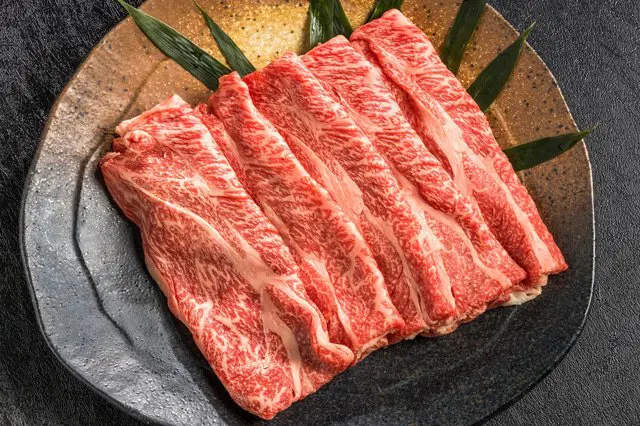
Kobe beef is from Tajima cattle stock and must clear strict standards to be officially recognized. “Kobe-gyu” and “Kobe meat” are different names for the same brand.
The Difference Between “Wagyu Beef” And “Kobe Beef”
As we’ve explained, Kobe beef is actually a brand within the category of Wagyu beef. For Tajima cattle that have been certified as Wagyu beef, they need to meet the following conditions for Kobe beef certification. Cows must have never given birth, and bulls must have been castrated; the standard marbling value of the beef should be higher than No. 6 and their carcasses must weigh between 230-470kg (for cows) and 260-470kg (for bulls).
Trivia About Kobe Beef
・Annual Number Of Shipped Cattle
Anywhere from 30,000 to 50,000 Kobe cattle are shipped over the course of the year.
・Creating That Perfect Marbling
First, breeding professionals strictly evaluate the herd to select the cattle whose flesh is genetically predisposed to marbling, and develop exercise and nutrition routines for them, down to the last detail; it is also vital to regulate their levels of testosterone. For these reasons, Kobe beef professionals treat their cattle with the utmost care until the day that they are shipped.
・Genders Of Kobe Cattle
Only cows who have never given birth, or castrated bulls, can be recognized as Kobe beef.
・Raising Period
Kobe cattle are raised for 30 to 32 months. Their beef is most delicious around this time, so in general, they are shipped during this period.
・Feed For Kobe Cattle
Most of the fodder given to Kobe cattle is not fresh grass, but dry grass combined with a fodder mixture to improve fat marbling. Most of this grass is carefully prepared by specialist contractors before being fed to the cows.
Where to Eat Wagyu Beef and Kobe Beef in Japan
Tokyo
Teppanyaki Ranma
Ranma uses only the finest Kuroge Wagyu beef in its celebrated steaks and Hamburg steaks. Hidden away in a quiet residential neighborhood in ritzy Higashi-Azabu, the ambiance of this low-key restaurant makes it a perfect date spot. How about visiting Ranma with your special someone?
Address: Tokyo, Minato Ward, Higashi-Azabu 1-18-5
Closed: Tuesday
Hours: 11:30-14:00 , 18:00-22:00 (last order at 21:00)
Phone: 03-6230-3636
Homepage: http://www.t-ranma.com/
Gyu-den
This yakiniku restaurant uses carefully selected Yamagata beef in its classic kalbi and sirloin dishes, and also serves thick-cut grilled rib sirloin and kalbi steaks. Gyu-den also handles Yonezawa beef and is a comfortable spot to visit when you’re celebrating a special day.
Address: Tokyo, Chiyoda Ward, Nagatacho 2-11-1
Closed: Saturday, Sunday and on public holidays
Hours: 11:30-14:30 (last order at 14:00), 17:30-23:00 (last order at 22:30)
Phone: 03-5251-5329
Wagyu Yakiniku KIM
The meat at KIM, in the upscale residential neighborhood of Shirogane, will set your stomach to growling. The chefs will diligently prepare carefully selected A5 Wagyu beef cuts and cook them to unlock their original, true flavor potential. KIM is listed in the Tokyo Zagat restaurant guide and entertains many customers from overseas.
Address: Tokyo, Minato Ward, Shirogane 2-2-2
Closed: No fixed holidays
Hours: Weekdays 18:00-23:30 (last order at 22:30), Saturday, Sunday and on public holidays 17:00-23:30 (last order at 22:30)
Phone: 03-6450-4129
Homepage: http://yakiniku-kim.wix.com/wagyu
Teppanyaki Kubire
Pass through the low-hanging door into Kubire’s stylish, relaxed interior. You can savor Kagoshima-sourced A5 Kuroge Wagyu sirloin and filet steaks, as well as Ezo abalone, foie gras and all sorts of other hand-selected ingredients. Enjoy the beef and various other special dishes at Kubire.
Address: Tokyo, Shibuya Ward, Hiroo 1-7-17
Closed: Sunday
Hours: 18:00-24:00 (last order at 23:00)
Phone: 03-5739-1488
Yakiniku Kunimoto Honten
Entrust your dinner order to the chef at this restaurant, who serves up excellent brand-name beef from Omi, Iwate, Sendai and places all across Japan. Walk half a minute away and you’ll find Yakiniku Kunimoto Shinkan, run by the owner’s younger brother.
Address: Tokyo, Minato Ward, Hamamatsucho 2-12-2
Closed: Monday
Hours: (T-F) 17:00-23:00, (weekends) 17:00-22:00
Phone: 03-3578-1129
Homepage: http://www.8929kunimoto.com/
Les Boeufs
This specialty shop does direct wholesale of beef from Kuroge Wagyu bulls, and you can eat first-rate Wagyu beef at a shockingly cheap price. Les Boeufs is quite popular, so you should make a prior reservation.
Address: Tokyo, Setagaya Ward, Nakamachi 5-21-8
Closed: New Year
Hours: 17:00-23:00 (last order at 22:30)
Phone: 03-5707-0291
Homepage: http://www.okuyoshi.com/youga.html
Niku No Tajima
Niku No Tajima specializes in Matsusaka Beef. The second floor is a yakiniku restaurant, while the third floor serves up sukiyaki, shabu-shabu, and steak. Choose the floor that’s right for you! The individual ID numbers of the cows used are displayed on the walls, making your meal feel anything but ordinary. The first floor is a butcher shop.
Address: Tokyo, Edo Ward, Ogibashi 1-4-1
Closed: Monday
Hours: 11:00-23:00 (last order at 22:30)
Phone: 03-3699-8929
Homepage: http://www.nikunotajima.com/
Wagyu Shio Yakiniku - Black Hole, Shinjuku 3-chome Branch
At Black Hole, you can eat high-quality Wagyu beef ordered from various regions across Japan. Sample the plentiful selection of rare cuts like chuck flap, bottom flap and top blade.
Address: Tokyo, Shinjuku Ward, Shinjuku 3-5-3
Closed: New Year
Hours: 11:30-15:00 (last order at 14:30), 17:00-24:30 (last order at 24:00)
Phone: 03-6457-4129
Homepage: http://www.iloveyakiniku.com/index_bh.html
Lamp
A casual teppanyaki restaurant in the hip Daikanyama area of Tokyo, Lamp’s A5 Kuroge Wagyu sirloin steak is highly recommended. Enjoy delicious Wagyu beef at a very reasonable price.
Address: Tokyo, Shibuya Ward, Ebisu-nishi 2-10-8
Closed: Sunday
Hours: 18:00-23:30
Phone: 03-6416-3633
Wagyu Yakiniku Gyusho
In addition to operating a meat wholesale business, Gyusho is careful to serve only the best quality of Wagyu beef at its restaurant. Because the day’s meat is directly purchased from the market, Gyusho can offer excellent beef at reasonable prices. The grilled steak lunch sets start at an astonishingly low 800 yen.
Address: Tokyo, Chiyoda Ward, Kanda Tsukasa-machi 2-17
Closed: Sunday, public holidays
Hours: 11:00-13:30 (lunch only on weekdays), 17:00-23:00
Phone: 03-3219-1129
Homepage: http://www.gyu-syo.com/
Teppanyaki Miyachi
At Miyachi, the chefs will grill your Kuroge Wagyu steaks right in front of you. We also recommend the Kuroge Wagyu Hamburg steaks. While it is a comparatively high-class restaurant, the lunch sets start at a very reasonable 1000 yen.
Address: Tokyo, Chuo Ward, Ginza 5-5-11
Closed: Open all year
Hours: Lunch (M-F) 11:30-14:00, Saturday, Sunday and on public holidays 11:30-15:00, Dinner 17:30-23:00 (last order at 21:30)
Phone: 03-6252-1129
Rogama Steak Renga
This restaurant’s dinner service is quite unusual; every day at 8 PM, a large block of beef weighing six or seven kilograms is grilled and shared by all the restaurant patrons. Together with the hidden-away location, diners can also enjoy unique entertainment.
Address: Tokyo, Shibuya Ward, Shibuya 1-6-4
Closed: Sunday
Hours: 18:30-24:00 (18:30-20:00 is reservation only)
Phone: 03-3409-2911
Homepage: http://renga-shibuya.com/
Aged Beef Tajima-Ya, Toranomon Hills
Like the name says, Tajima-Ya serves aged beef. Savor Tajima beef that has been aged for over 45 days. The restaurant has original names for how the beef is cooked, which makes you feel the chef’s careful consideration.
Address: Tokyo, Minato Ward, Toranomon 1-23
Closed: Open all year
Hours: 11:00-15:00 (last order at 14:00), 17:00-23:00 (last order at 22:00)
Phone: 03-3593-1129
Homepage: http://steak.tajima-ya.co.jp/
Red Rock, Takada-no-Baba
The signboard menu offerings are the Kuroge Wagyu steak bowl and the roast beef bowl at this restaurant. With shockingly great value for money - around 1,000 yen for a heaping helping of beef - there is almost always a line out the door, so be aware of this when you go. The main branches are in Kobe, but Red Rock has expanded to Osaka, Kyoto, Nagoya and Fukuoka as well as Tokyo.
Address: Tokyo, Toshima Ward, Takada 3-11-14
Closed: Open all year
Hours: 11:30-24:00 (last order at 23:30)
Phone: 03-6380-3917
Homepage: http://www.redrock-kobebeef.com/
Wine And Kitchen Beeftei
Wine And Kitchen Beeftei is a Western-style dining establishment produced by the former chef at Seiniku-ya and current owner of the popular Beeftei yakiniku restaurant, which has several locations in Tokyo. A few of the high-ranked Wagyu beef menu items that you must try include the so-called “gatsun grilled steak” - named for the thumping sound it makes when it hits the table - the beef rumen ajillo, and the Wagyu liver paste.
Address: Tokyo, Meguro Ward, Kamimeguro 2-6-9
Closed: No fixed holidays
Hours: 18:00-24:00 (last order at 23:30)
Phone: 03-5794-9889
Homepage: http://www.beeftei.jp/wk/index.html
Osaka
Gyu Toro-ya
This yakiniku restaurant grills up various Wagyu brands, including Kobe, Tajima and Omi, so you can comfortably enjoy a meal of superbly marbled beef. You can eat as much high-quality meat as you can handle with the popular all-you-can-eat course.
Address: Osaka, Osaka City, Fukushima Ward, Yoshino 2-15-18
Closed: Tuesday
Hours: 17:00-24:00 (last order at 23:30)
Phone: 06-6446-3545
Monami
A Western-style restaurant famous for the volume of its Kobe beef and Hamburg steaks, Monami is featured in many magazines and on TV programs, and also counts various celebrities among its regular patrons. Be forewarned, it’s often quite crowded.
Address: Osaka, Osaka City, Chuo Ward, Tanimachi 63-14
Closed: Monday
Hours: 17:40-22:30(last order at 22:00)
Phone: 06-6763-1129
Hishimekiya
At this popular restaurant, customers can enjoy A4 Wagyu beef at a reasonable price, making it a hit with locals. We recommend making a reservation in advance. Hishimekiya serves up whole cuts of Tsuru beef - allegedly the oldest cattle breed in Japan, and the progenitor of the Kobe and Matsusaka cattle lineages - as well as Chiya beef, Okayama’s oldest Kuroge Wagyu brand. The menu includes an array of rare beef cuts.
Address: Osaka, Osaka City, Ikeda-cho 17-5
Closed: Open all year
Hours: M-F 17:00-24:00 (last order at 23:30), Saturday, Sunday and on public holidays 16:00-24:00 (last order at 23:30)
Phone: 050-5787-8752
Kobe Beef Teppanyaki, Rio
At this Kobe beef teppanyaki restaurant, the chef will carefully grill your individual dishes on a giant iron plate. Rio also serves lobster and abalone steak.
Address: Osaka, Osaka City, Kita Ward, Umeda 1-9-20
Closed: Open all year
Hours: 11:30-15:00 (last order at 14:00), 17:00-22:00 (last order at 21:00)
Phone: 06-6346-1321
Gyuichi
Located in Tsuruhashi, which has many yakiniku restaurants, Gyuichi orders whole cuts of Wagyu beef - primarily Kobe beef - and customers devour their reasonably priced, delicious dishes
Address: Osaka, Osaka City, Tennoji Ward, Shimoajihara-cho 2-7
Closed: Open all year
Hours: 11:00-23:15 (last order at 22:45)
Phone: 06-6772-9155
Charcoal-Grilled Yakiniku, Seijiro
Enjoy all-you-can-eat Kuroge Wagyu beef at Seijiro. In addition to sirloin and skirt steak, Seijiro offers various horumon dishes (prepared innards) as well as Korean-style menu items like kimchi and butter lettuce.
Address: Osaka, Osaka City, Kita Ward, Sonezakishinchi 1-10-16
Closed: Sunday, national holidays
Hours: 17:00-24:00 (last order at 23:00) M-F Lunch 11:30-14:00 (last order at 13:30)
Phone: 050-5816-9012
M-No-Yakiniku, Fukushima
This restaurant primarily serves Matsusaka beef, as well as Kobe beef and some other brands. Try out the decadent sampler to compare and contrast the flavors of several high-class beef varieties. The restaurant also offers shabu-shabu during winter.。
Address: Osaka, Osaka City, Fukushima Ward, Fukushima 5-4-8
Closed: Open all year
Hours: 17:00-24:00 (last order at 23:00)
Phone: 06-6452-7070
Kobe
Setsugetsuka Hanare
We recommend the aged Kobe beef sirloin steak at this Michelin-starred restaurant, which has a spectacular taste that can be found nowhere else.
Address: Hyogo, Kobe City, Chuo Ward, Nakayamate-dori 1-25-6
Closed: Open all year
Hours: Weekdays 17:30-23:00, Saturday, Sunday and on public holidays 17:00-23:00
Phone: 078-222-0029
Beef-teki No Kawamura
The chef at Kawamura grills Kobe beefsteaks - known as “beef-teki” in Japanese - right in front of your eyes on an iron plate. The Hamburg steak lunch set, which starts at 2,000 yen, is a great value for money. You’ll understand why Kawamura gets so much repeat business.
Address: Hyogo, Kobe City, Chuo Ward, Kitanagasa-dori 1-10-6
Closed: No fixed holidays
Hours: 11:30-15:00, 17:00-22:30 (last order at 21:30)
Phone: 078-335-0708
Sosaku Yakiniku Kobe Gyu-No-Takumi
The steaks of delicious Kobe beef are a given at Gyu-No-Takumi, and the restaurant has clever original dishes for customers to sample, too. There is also a bus service available, for groups of more than 10 people, so contact the restaurant for details.
Address: Hyogo, Kobe City, Nishi Ward, Ikawadani-cho Arisetobashi 660
Closed: Wednesday
Hours: 11:30-14:30 (last order at 14:00), 17:00-24:00 (last order at 23:00)
Phone: 078-978-1550
Kiyama
Kiyama is the sister restaurant of Kisshokichi, the world’s top provider of Kobe beef. Thanks to its incredibly fresh beef, Kiyama offers not just steaks but even Kobe beef sushi on its bountiful menu.
Address: Hyogo, Kobe City, Chuo Ward, Kitanagasa-dori 2-12-6
Closed: No fixed holidays
Hours: Lunch 11:30-15:00, dinner 17:00-21:30
Phone: 078-392-0830
Steakland Kobe-kan
Enjoy delicious Kobe beef steaks at a reasonable price. Steakland’s lunch menu items, priced around 1,000 yen, are particularly popular. The restaurant is often crowded, so expect to wait when you go.
Address: Hyogo, Kobe City, Chuo Ward, Kitanagasa-dori 1-9-17
Closed: No fixed holidays
Hours: 11:00-22:30 (last order at 22:00)
Phone: 078-332-2900
Grill de Kobe
People come from far away to eat the A5 Kobe beef steaks at Grill De Kobe, which are grilled using high grade ubame oak charcoal. You can also enjoy making taste comparisons with Sanda Wagyu beef.
Address: Hyogo, Kobe City, Chuo Ward, Kitanagasa 2-5-1
Closed: No fixed holidays
Hours: Weekdays 17:30-23:30 (last order at 22:00) Saturday, Sunday and on public holidays; lunch 11:30-15:30 (last order at 14:30), dinner 17:00-24:00 (last order at 22:30)
Phone: 078-392-2998
Steakhouse Garaku
Have a gorgeous Kobe beef meal at this stylishly decorated teppanyaki restaurant. There are also seasonal seafood dishes, abalone, and many other delicious menu items other than beef.
Address: Hyogo, Kobe City, Chuo Ward, Yamamoto-dori 2-14-25
Closed: Wednesday
Hours: 11:30-15:00, 17:30-21:00
Phone: 078-241-0310
Homepage: http://www.steakhouse-garaku-kitano.jp/
Popular Wagyu Hamburg Steak Restaurants
Meat Yazawa
Sample Yazawa’s extremely popular Kuroge Wagyu Hamburg steaks. For those who don’t mind a little redness, try out the unusual rare Hamburg steak.
Address: Tokyo, Shinagawa Ward, Nishi-Gotanda 2-5-13
Closed: Open all year
Hours: 11:30-24:00 (Closed on weekdays from 15:00-17:00)
Phone: 03-5436-2914
Homepage: http://kuroge-wagyu.com/my/
Hamburg Steak Miyazaki-tei
This is the place for Hamburg steaks made of 100% Miyazaki Wagyu beef. The restaurant lightly salts the beef in place of using sauce, which shows how confident Miyazaki-tei is in the quality of their ingredients.
Address: Tokyo, Toshima Ward, Nishi-Ikebukuro 1-4-3
Closed: Thursday
Hours: 11:30-14:00, 17:00-22:30
Phone: 03-6912-5257
Kuroge Shichirin
Kuroge Shichirin deals in whole cuts of A5 Kuroge Wagyu beef. The restaurant’s specialties include not just Hamburg steaks, but also menchi katsu (breaded, deep-fried beef patties), which are carefully fried to keep in 100% of the Wagyu beef taste.
Address: Tokyo, Shibuya Ward, Ebisu 1-34-1
Closed: Sunday
Hours: 11:30-14:30, 18:00-22:30
Phone: 03-3446-3480
Homepage: http://kurogeshichirin.com/
Wagyu beef now represents Japan to the rest of the world! This tender, fat-marbled meat still can’t be enjoyed outside of Japan, so when you visit, by all means, try Wagyu beef for yourself!
All pictures from PIXTA
日本への訪日外国人の方が、もっと増えますように!


































![[Kagoshima] Overcoming 12 Years of Hardship: Walking through Minamisatsuma City, the sacred land where the monk Ganjin landed](https://resources.matcha-jp.com/resize/720x2000/2026/02/21-259481.webp)
